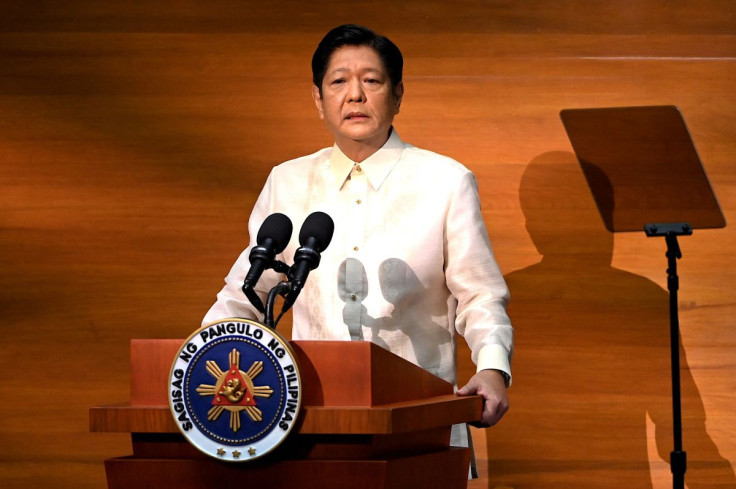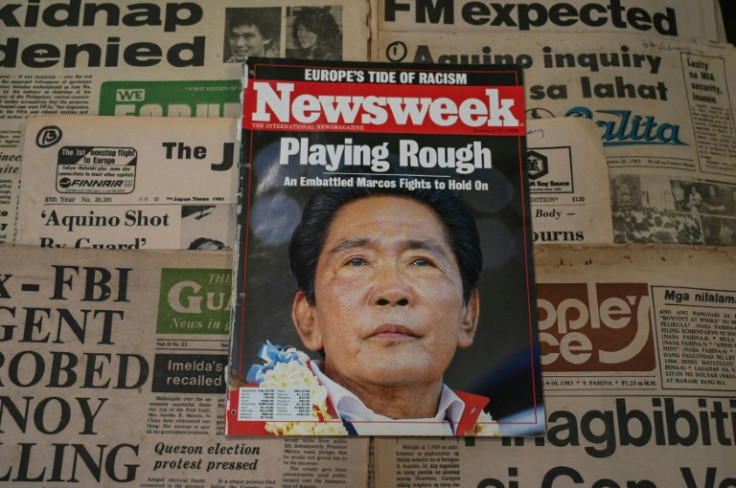Philippines' Marcos Jr Declares Holiday The Date His Dictator Father Was Deposed From Power

KEY POINTS
- Philippine President Marcos hastily declared Friday, Feb. 24, a special non-working day
- Marcos followed the "holiday economics" rule, which moves holidays to the closest Monday
- Many Filipinos believe the spirit of the People Power is still alive, according to a survey
Philippine President Ferdinand Marcos Jr. declared Friday, Feb. 24, a special non-working day to commemorate the 37th anniversary of the EDSA People Power Revolution that toppled his father from power.
Marcos signed Proclamation No. 167, moving the original date of the revolution's anniversary from Saturday, Feb. 25, to Feb. 24.
The Philippine President argued that moving the date would allow Filipinos to enjoy a long weekend while maintaining the "historical significance" of the revolution.
"To enable our countrymen to avail of the benefits of a longer weekend pursuant to the principle of holiday economics, the celebration of EDSA People Power Revolution Anniversary may be moved from 25 February 2023 (Saturday) to 24 February 2023 (Friday), provided that the historical significance of the EDSA People Power Revolution Anniversary is maintained," according to the document.
The declaration of a special non-working day was signed by Marcos Thursday at noon and released to the public in the evening. This led to some Filipinos on social media complaining that their businesses and appointments for Friday were disrupted.
Marcos had already declared the anniversary of the People Power Revolution a special non-working holiday when he signed Proclamation No. 42 in August 2022, according to a report by the Philippine online news outlet Rappler.
But the Philippine leader amended the document in November, which created more long weekends in 2023, after heeding the principle of "holiday economics" of former President Gloria Macapagal-Arroyo, a close ally of Marcos.
The holiday economics meant moving holidays to the closest Monday to create a long weekend.
As of late, the Philippine presidential office has not yet responded to media queries asking where Marcos intends to spend the first People Power anniversary as president.
The popular uprising began on Feb. 22, 1986, after then-Philippine Armed Forces vice chief-of-staff Fidel V. Ramos and then-Defense Minister Juan Ponce Enrile defected from dictator Ferdinand Marcos Sr.'s regime, citing the widespread fraud that questioned the results and legitimacy of the Feb. 7 snap presidential elections.
Following their defection, then-Manila Archbishop Jaime Cardinal Sin spoke through a Catholic radio station urging the Filipino people to troop outside the Philippine military headquarters in a show of support.
On Feb. 24, the former Philippine strongman, through military chief-of-staff Fabian Ver, ordered an assault on the military camp. However, throngs of people continued to flock to Manila's main highway, the Epifanio Delos Santos Avenue (EDSA).
When evening came, the U.S. government abandoned its support to Marcos Sr. and endorsed the provisional Philippine government of Corazon Aquino, the wife of slain Filipino senator Benigno Aquino Jr.
By Feb. 25, Aquino and Marcos Sr. took their oath of office as president.
By evening, several U.S. helicopters fetched the Marcos family from the presidential palace, ending their almost 21-year regime.
According to "People Power: The Philippine Revolution of 1986: An Eyewitness History," a book chronicling the events during the revolution, between 1 million to 2 million Filipino people gathered in EDSA.
But in 2022, 36 years after the revolution, the Marcos family successfully returned to the Philippines' seat of power after the current president won in a landslide during the presidential election. Experts see it as a repudiation after the promises of the People Power failed to materialize.
Despite the return of the Marcoses, a recent survey by the Philippine social research institution Social Weather Stations revealed that 62% of Filipinos believe that the spirit of the revolution is still alive.
However, the survey also showed that 47% of Filipinos said only a few promises of the revolution were fulfilled, while 28% said none were fulfilled.

© Copyright IBTimes 2024. All rights reserved.






















